Which Is An Appendicular Bone
Hips, Shoulders, Arms, and Legs: Bones of the Appendicular Skeleton
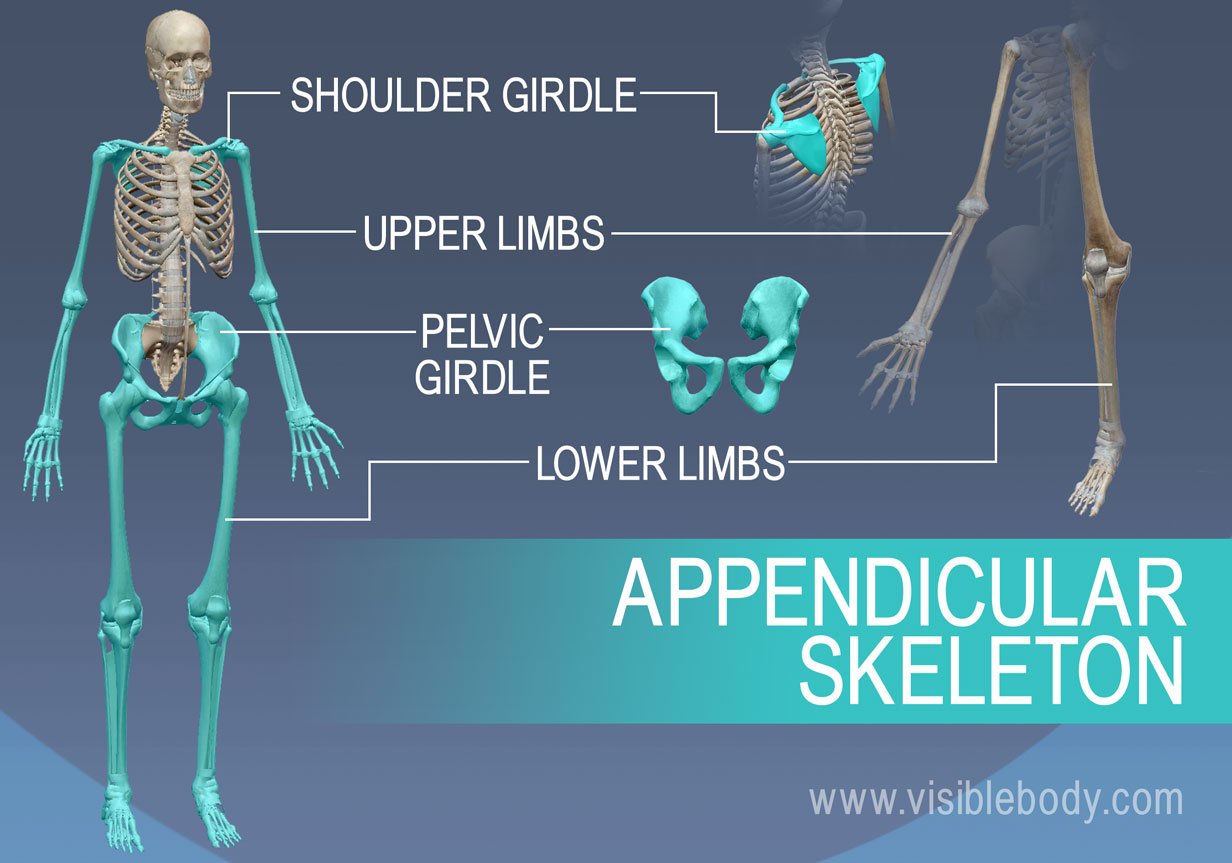
The bones of the human skeleton are divided into 2 groups. The centric skeleton includes all the bones (that form bony structures) along the trunk'south long axis. The bones of the appendicular skeleton make up the residual of the skeleton, and are and so called because they are appendages of the axial skeleton. The appendicular skeleton includes the bones of the shoulder girdle, the upper limbs, the pelvic girdle, and the lower limbs.
Let's take a look at the bones of the appendicular skeleton.
1. The Bones of the Shoulder Girdle
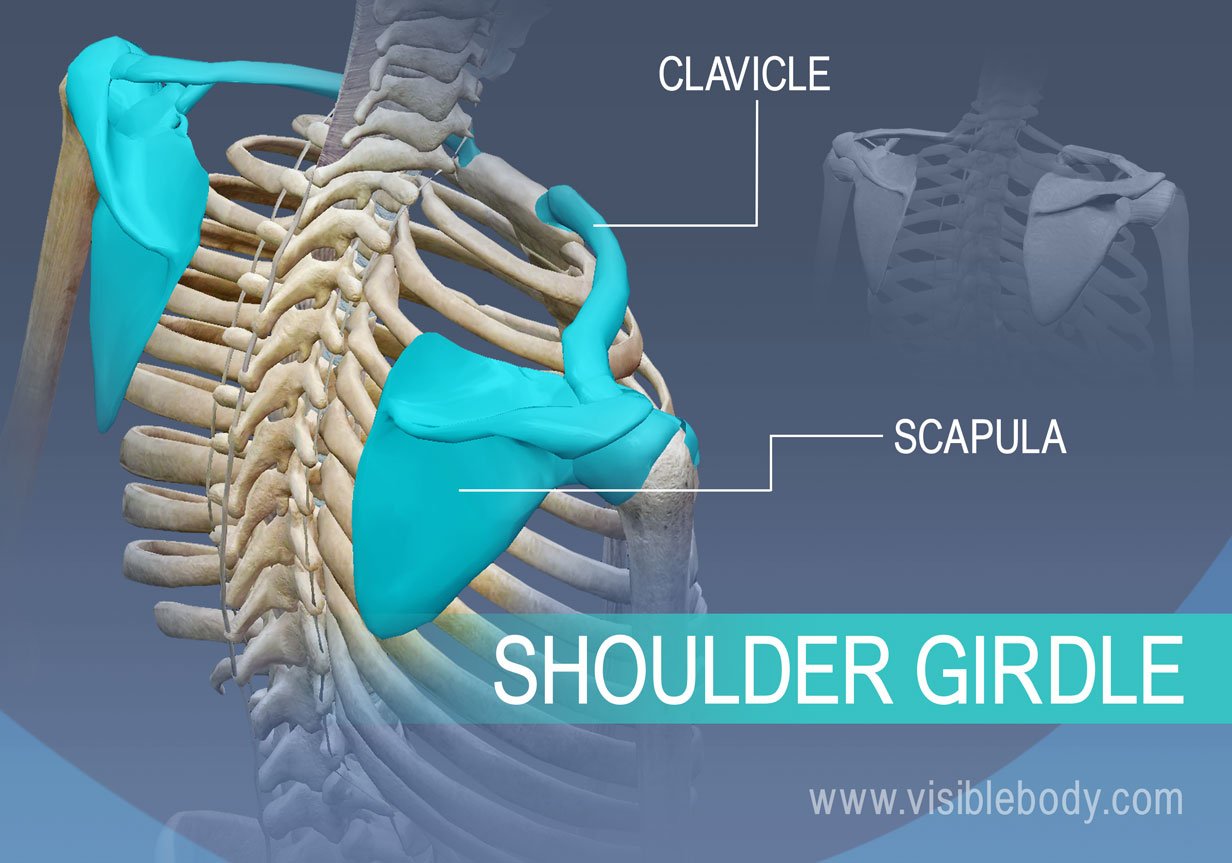
The pectoral or shoulder girdle consists of the scapulae and clavicles. The shoulder girdle connects the bones of the upper limbs to the axial skeleton. These bones also provide attachment for muscles that move the shoulders and upper limbs.
See the bones of the shoulder girdle in 3D:
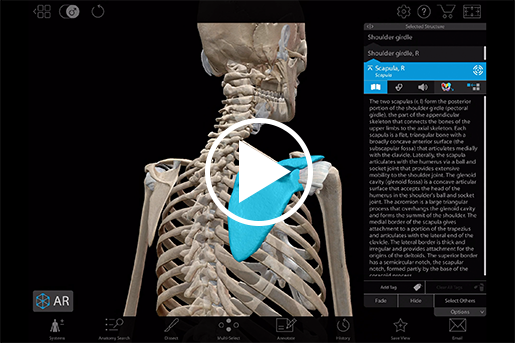
ii. Basic of the Upper Limbs
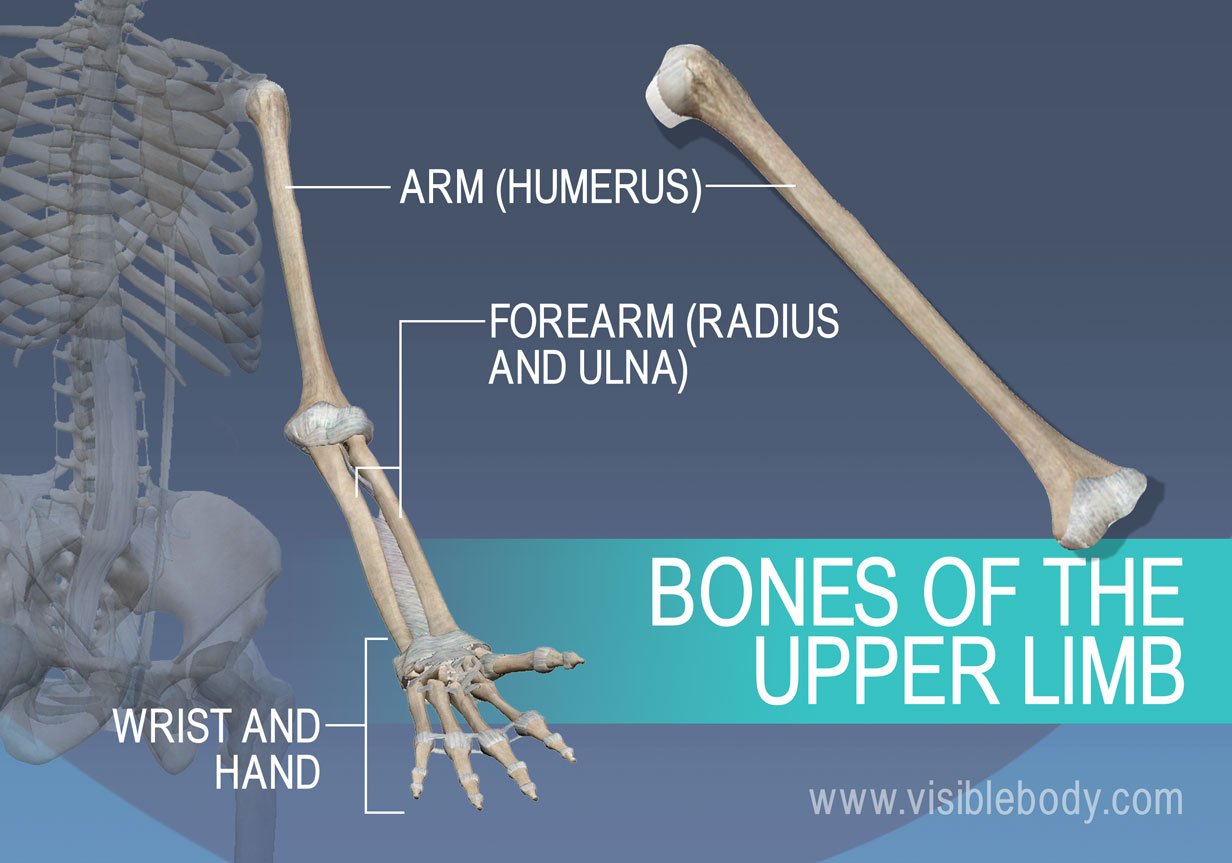
The upper limbs include the basic of the arm (humerus), forearm (radius and ulna), wrist, and manus. The merely bone of the arm is the humerus, which articulates with the forearm bones–the radius and ulna–at the elbow joint. The ulna is the larger of the two forearm bones.
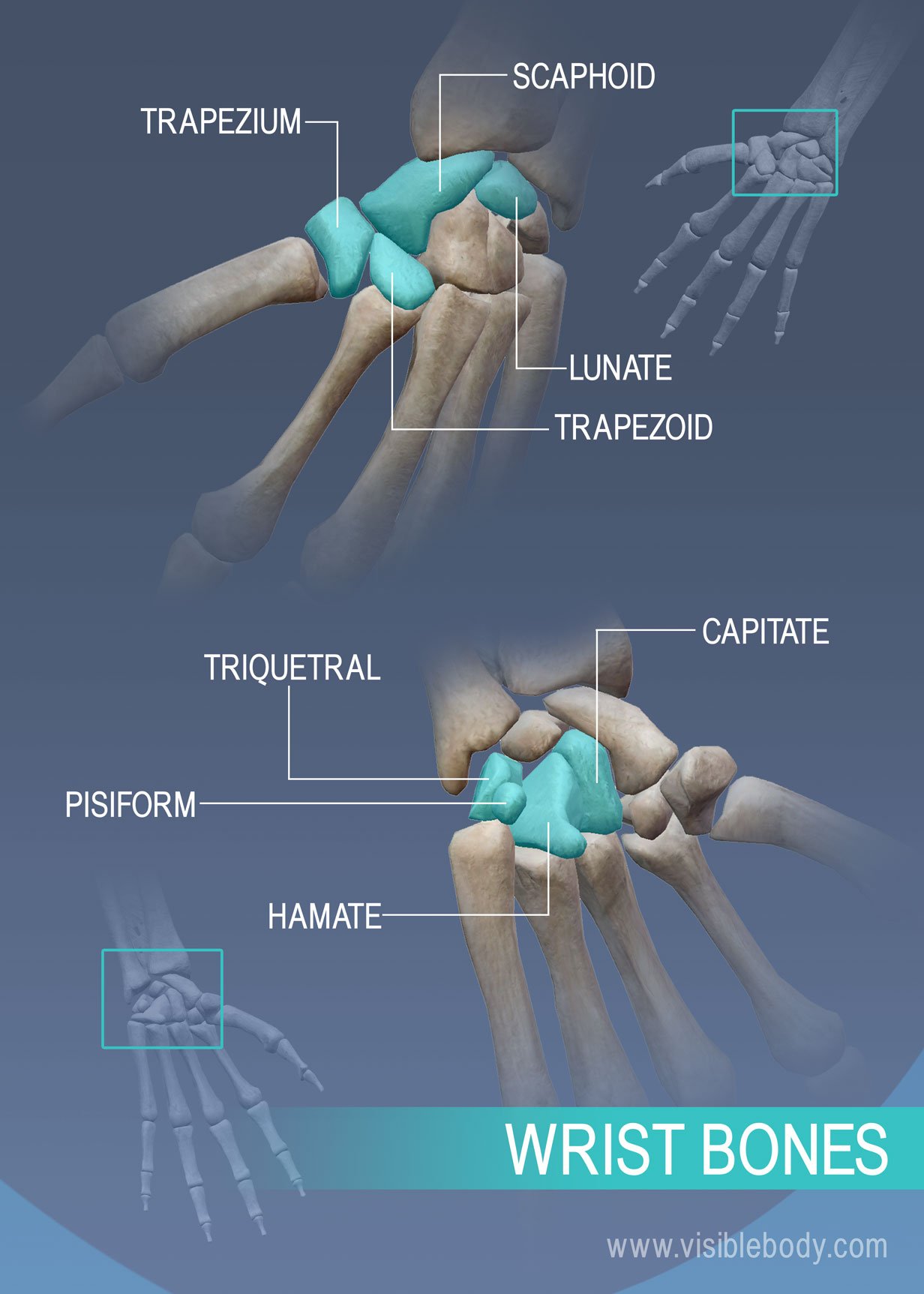
Wrist Bones. The wrist, or carpus, consists of eight carpal bones. One mnemomic to recollect the carpal basic is the sentence: Some 50overs Try Positions That They Can't Handle. The 8 carpal bones of the wrist are the Southcaphoid, 50unate, Triquetral, Pisiform, Trapezoid, Trapezium, Capitate, Hamate.
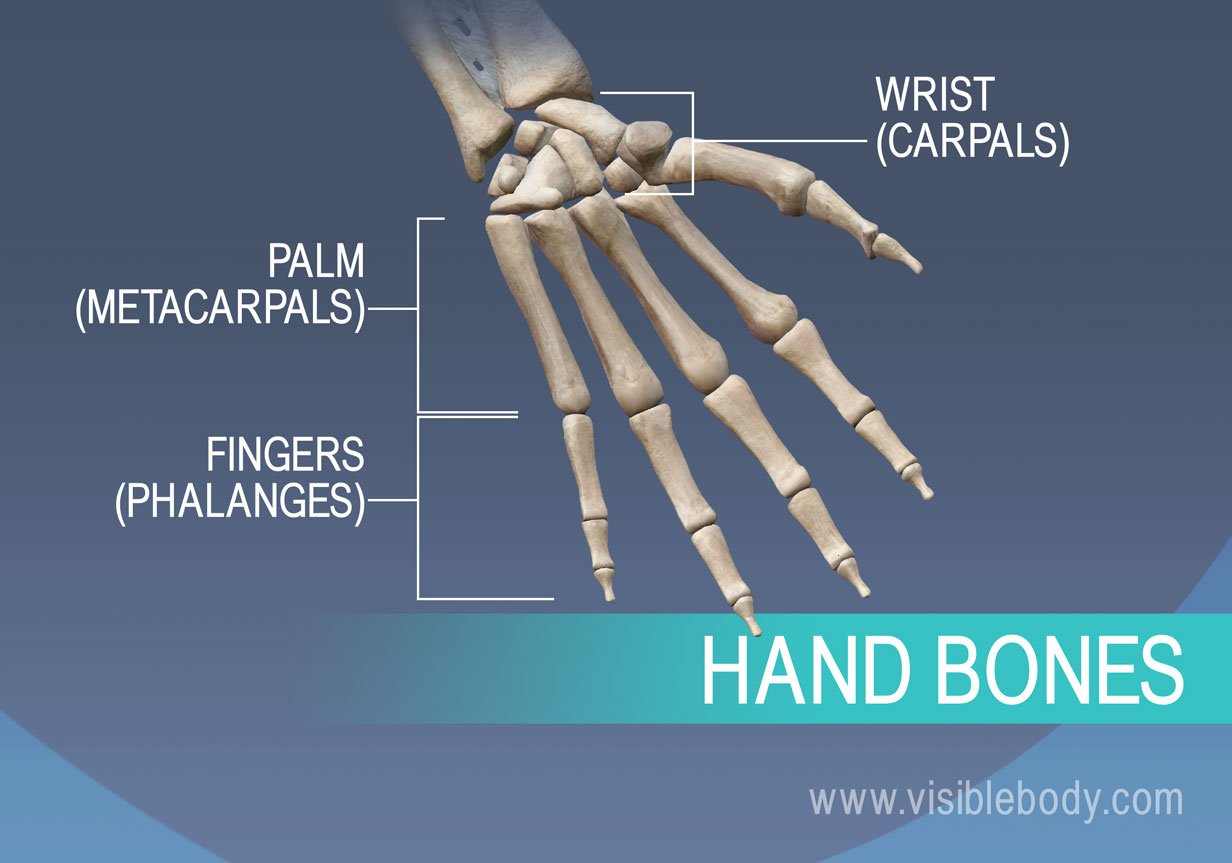 Hand Basic. The hand includes 8 bones in the wrist, 5 bones that form the palm, and 14 bones that class the fingers and thumb. The wrist bones are chosen carpals. The bones that form the palm of the hand are called metacarpals. The phalanges are the bones of the fingers.
Hand Basic. The hand includes 8 bones in the wrist, 5 bones that form the palm, and 14 bones that class the fingers and thumb. The wrist bones are chosen carpals. The bones that form the palm of the hand are called metacarpals. The phalanges are the bones of the fingers.
iii. The Basic of the Pelvis
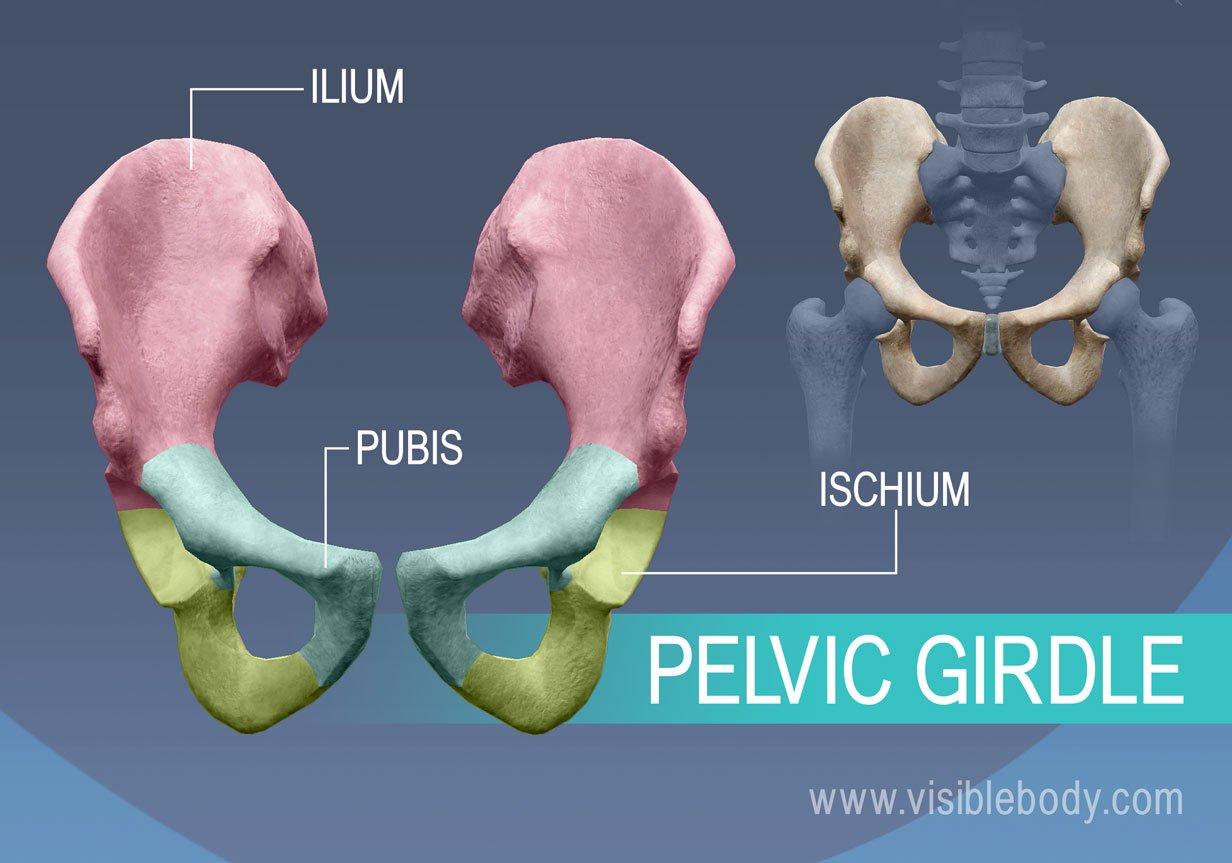
The pelvic girdle is a ring of bones attached to the vertebral column that connects the bones of the lower limbs to the axial skeleton. The pelvic girdle consists of the right and left hip basic. Each hip os is a big, flattened, and irregularly shaped fusion of three bones: the ilium, ischium, and pubis.
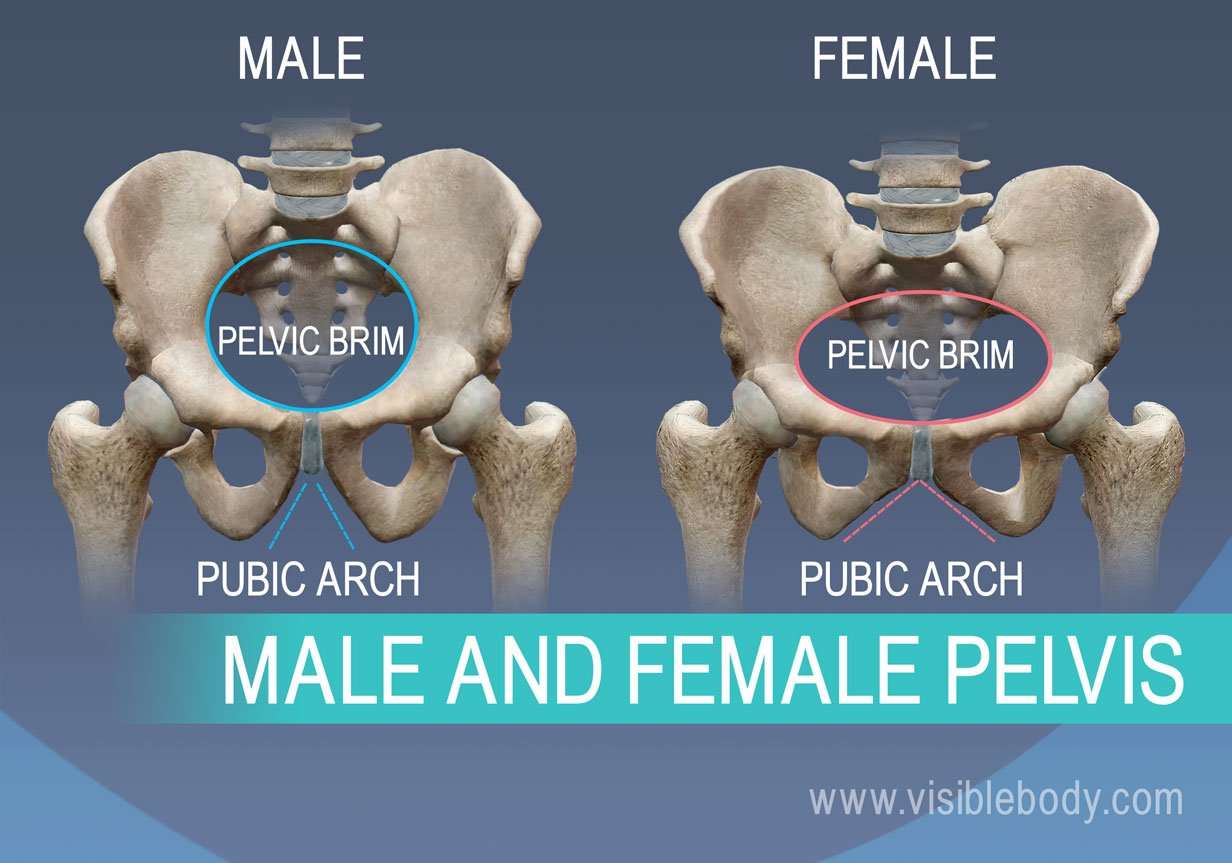 Female and Male Pelvis. The female and male pelvises differ in several means due to childbearing adaptations in the female.
Female and Male Pelvis. The female and male pelvises differ in several means due to childbearing adaptations in the female.
- The female pelvic skirt is larger and wider than the male person's.
- The angle of the pubic curvation is greater in the female pelvis (over xc degrees) than in the male person pelvis (less than 90 degrees).
- The male person pelvis is deeper and has a narrower pelvic outlet than the female person'southward.
iv. The Bones of the Lower Limbs
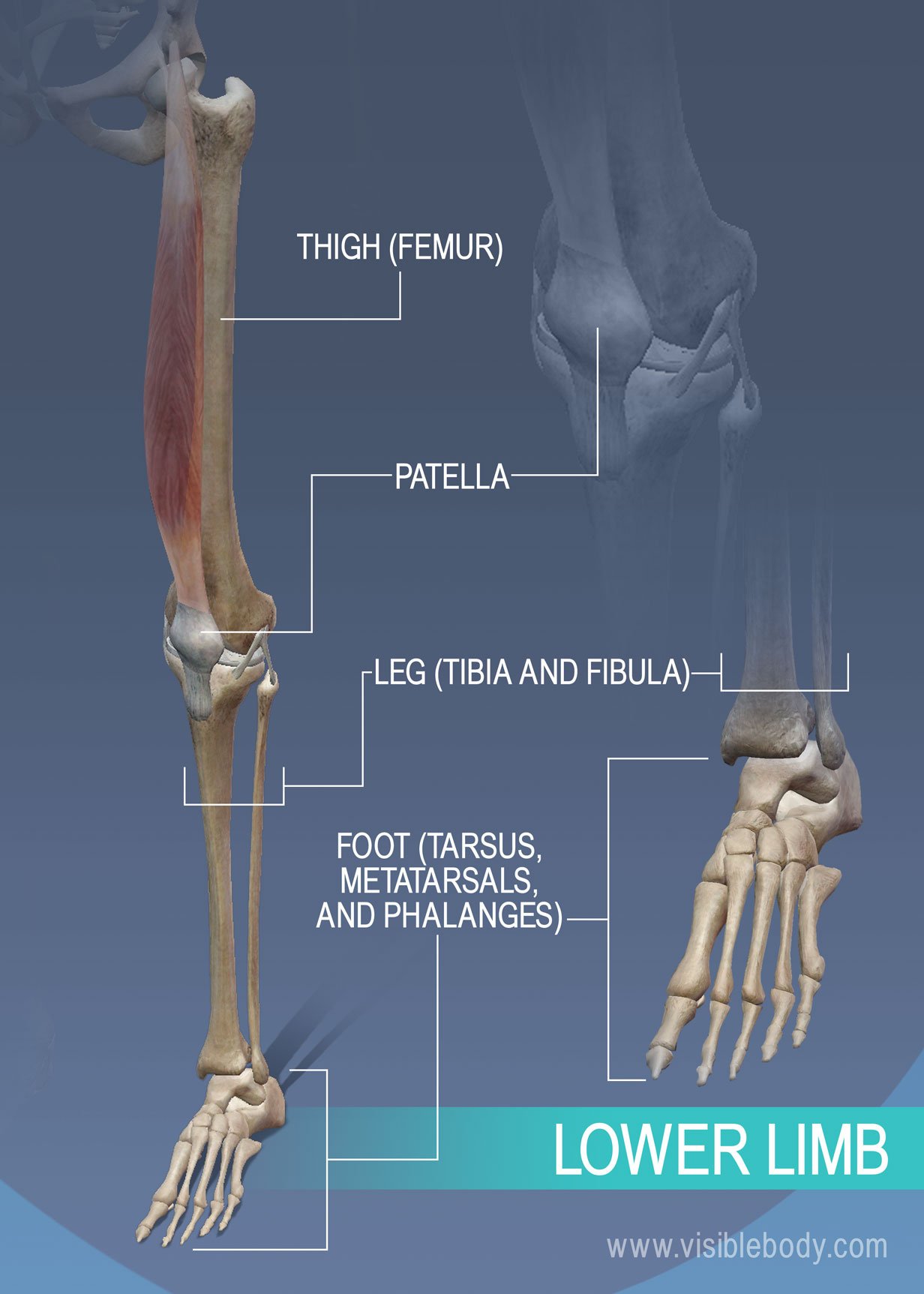
The lower limbs include the bones of the thigh, leg, and foot. The femur is the simply bone of the thigh. It articulates with the two bones of the leg–the larger tibia (commonly known equally the shin) and smaller fibula. The thigh and leg basic articulate at the genu articulation that is protected and enhanced past the patella bone that supports the quadriceps tendon. The bones of the pes include the tarsus, metatarsus, and phalanges.
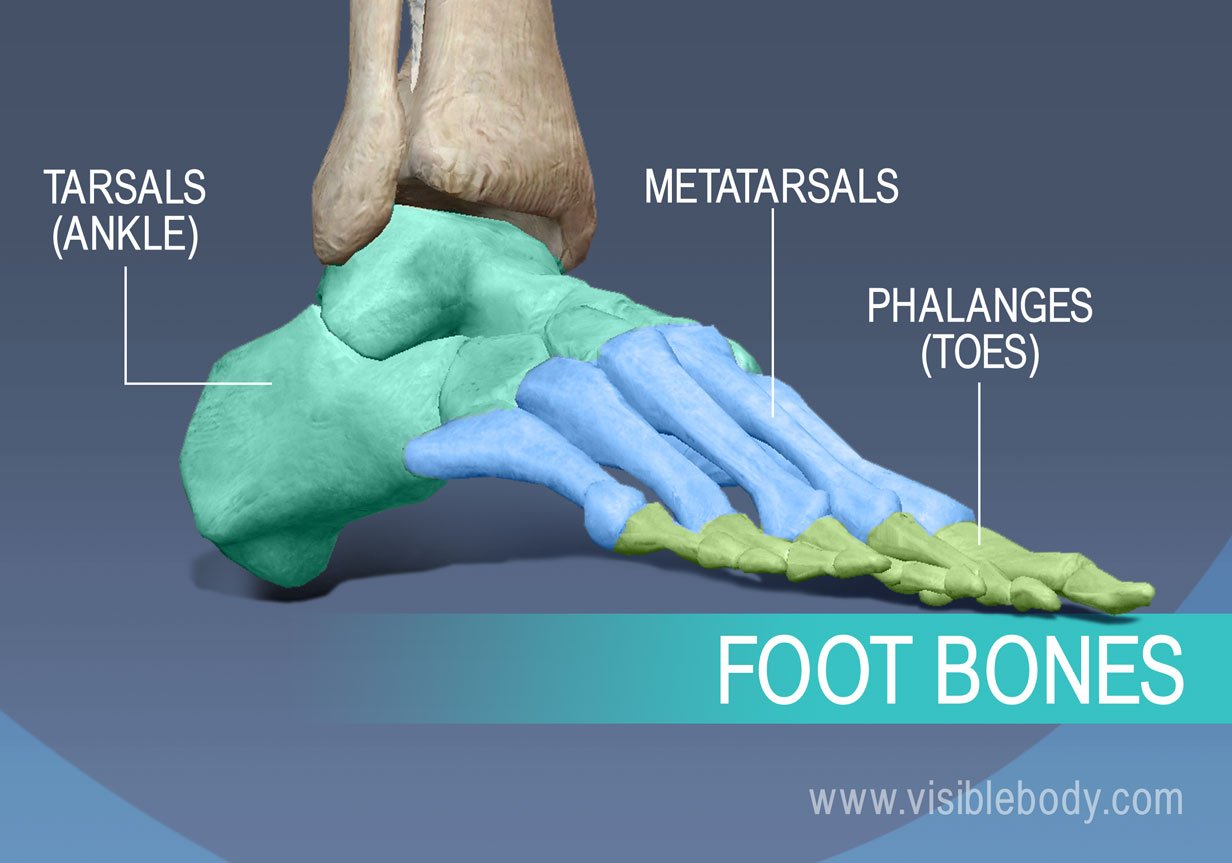
Human foot Bones. The basic of the foot consist of the tarsal bones of the ankle, the phalanges that grade the toes, and the metatarsals that give the foot its arch. Every bit in the manus, the foot has five metatarsals, v proximal phalanges, five distal phalanges, but but iv middle phalanges (as the foot'southward "big toe" has only ii phalanges).
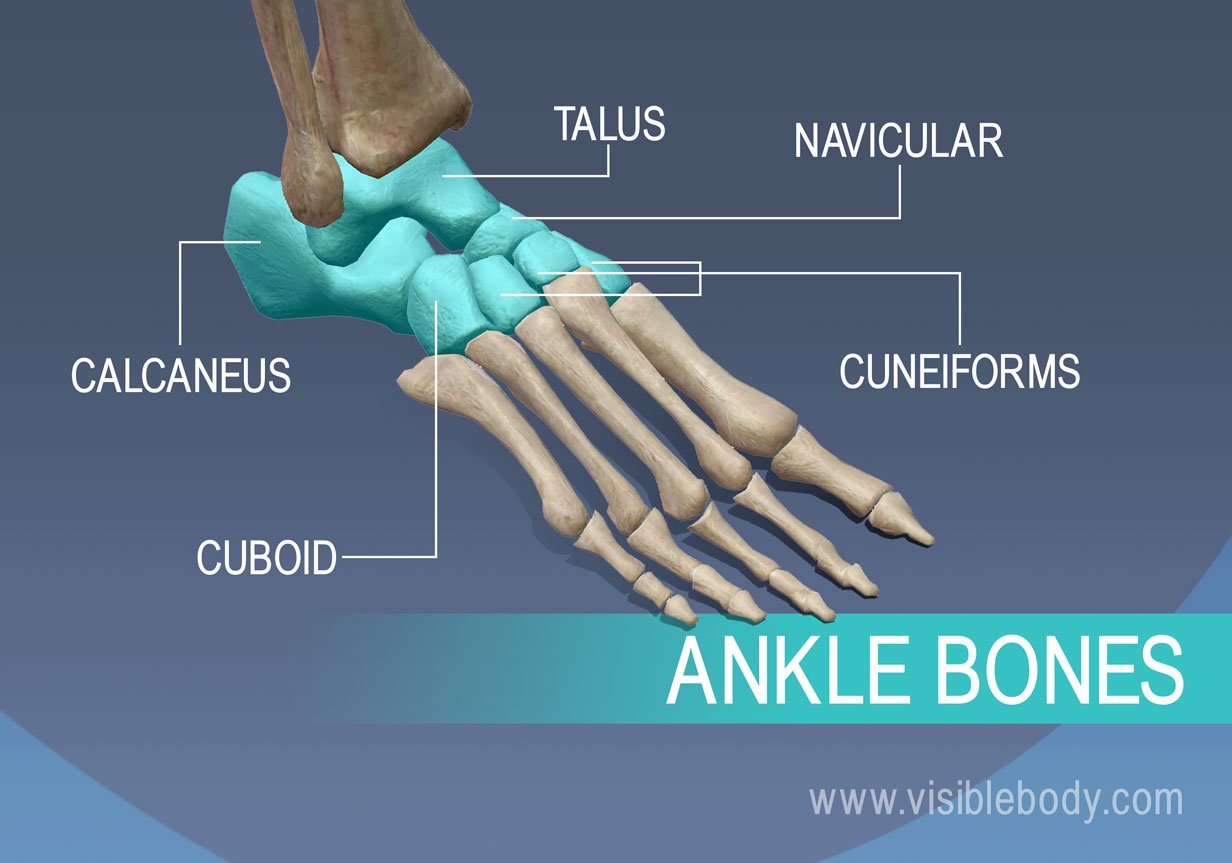
Ankle Bones. The ankle, or tarsus, consists of seven tarsal bones: the calcaneus, talus, cuboid, navicular, and 3 cuneiforms.
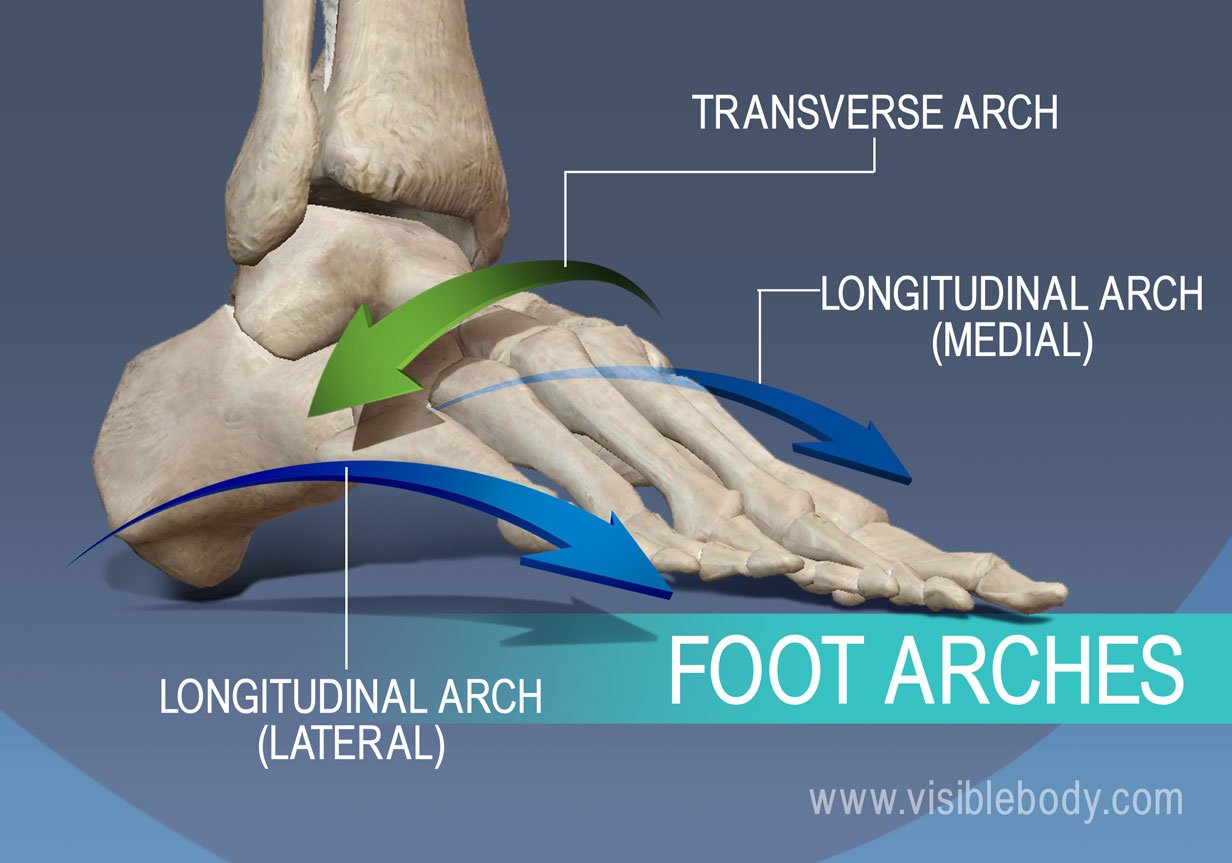
Foot Arches. The arches of the foot are formed by the interlocking basic and ligaments of the foot. They serve every bit shock-asborbing structures that back up body weight and distribute stress evenly during walking.
- The longitudinal arch of the foot runs from the calcaneus to the heads of the metatarsals, and has medial and lateral parts.
- The transverse arch of the foot runs beyond the cuneiforms and the base of operations of the metatarsal bones.
Download Appendicular Skeleton Lab Manual
Which Is An Appendicular Bone,
Source: https://www.visiblebody.com/learn/skeleton/appendicular-skeleton
Posted by: jacksonsheyesseet.blogspot.com


0 Response to "Which Is An Appendicular Bone"
Post a Comment